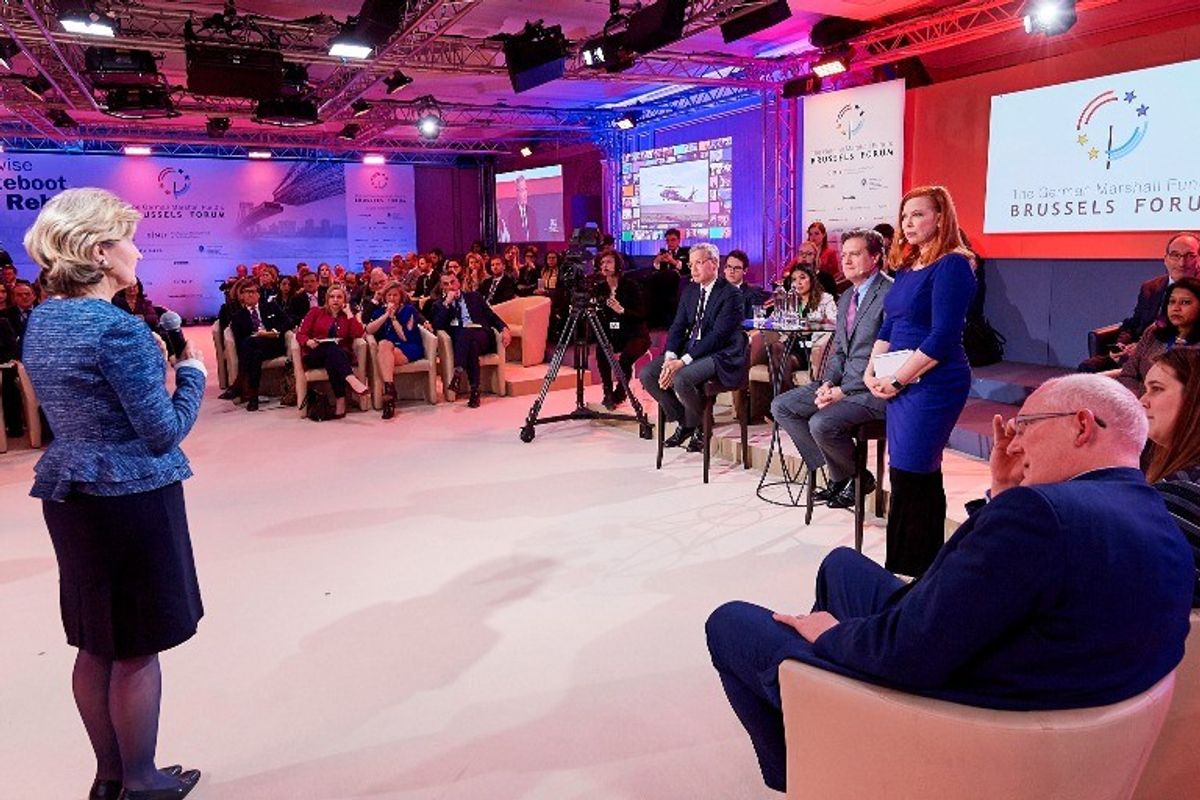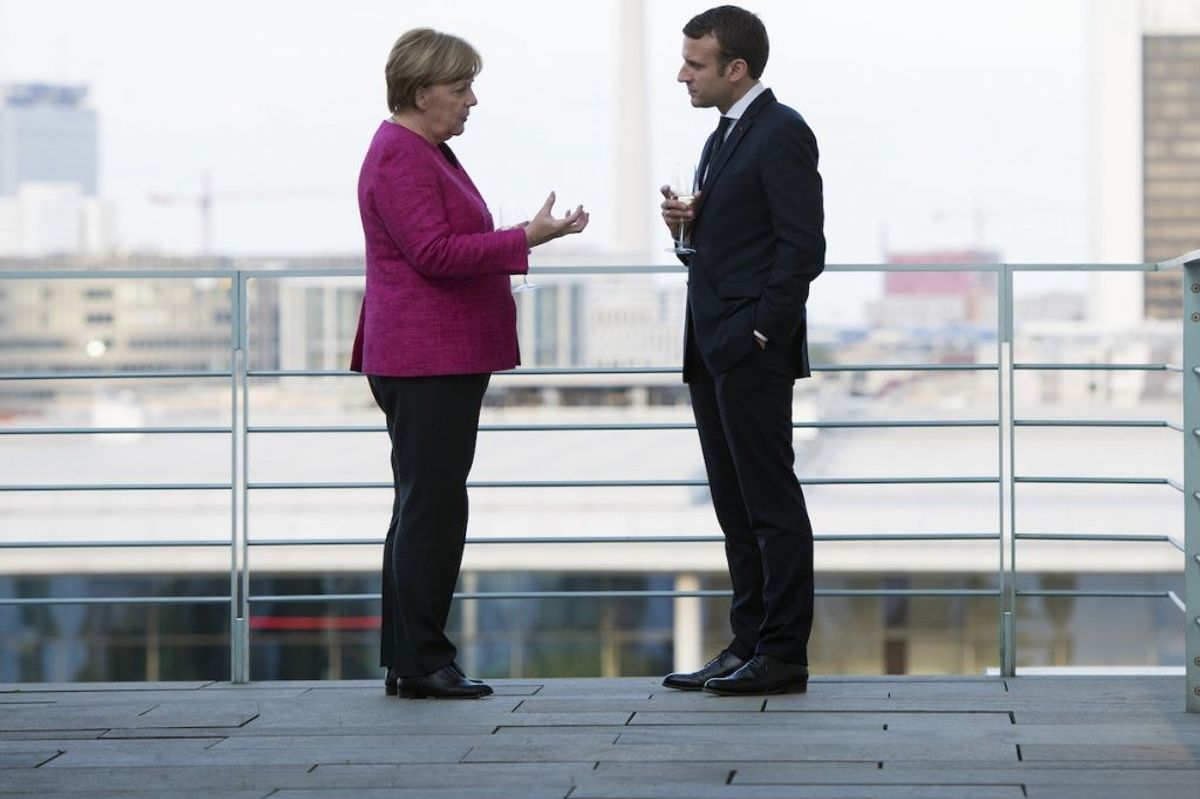The global system seems poised for major change. Last Thursday, the so-called Brexit referendum demonstrated this when a majority of 51.9 percent of British voters chose to leave the European Union. “For the first time, we are trying to figure out how to disintegrate rather than how to integrate,” Erik Jones, Director of the Europe program at the Johns Hopkins School of Advanced International Studies, told The Cipher Brief.
“Great Britain has decided, by a narrow margin, to question the last 70 years of European history […] The concept and rationale behind the whole European structure has been disturbed,” commented Albania’s former Defense Minister Fatmir Mediu. Bulgarian political scientist and Chairman of the Centre for Liberal Strategies in Sofia, Ivan Krastev, put it bluntly: “I have the feeling a period in European history that started in 1945 has ended.”
This changing world order – in which European unity is cracking – is not just a phenomenon for political ideologues to ruminate on. It has stark implications for security, economics, and politics.
European security
A fracturing Europe has the potential to bolster Russian revanchism, heighten terrorism concerns, and weaken U.S. influence in the region. “In recent years, Putin has done his very best to fracture and divide Europe, and this vote grants him a significant win, especially as it could dissolve European unity on sanctions,” according to Julianne Smith and Rachel Rizzo of the Center for a New American Security (CNAS).
In a phone interview with The Cipher Brief, Rizzo, who is a researcher in the CNAS Strategy and Statecraft Program, said that in light of a resurgent Russia and the overarching threat of terrorism, “It’s really important for the EU to come together and pursue common security, common foreign policy goals that forward [the] goals of a Europe whole, free, and at peace.”
“It is in America’s interest to see the European project succeed,” write Smith and Rizzo. Yet with the UK likely leaving the EU in the near future (although the referendum is not legally binding), the U.S. is caught in a catch-22: U.S. influence within the EU will wane with the loss of an interest-aligned partner – the UK – while concurrently, the U.S. will need to play a greater role in European security.
Stephen Szabo, Executive Director of the Transatlantic Academy at the German Marshall Fund, explained to The Cipher Brief, “Brexit has killed off any prospect of a European security identity within the EU, making NATO the only real option for maintaining security on the continent. This may result in both France and Germany more deeply engaging in NATO and pulling the U.S. back into a larger leadership role in Europe.”
Former Deputy Assistant Secretary of State for European and Eurasian Affairs, Heather Conley, said in response to Thursday’s referendum, “The U.S. needs to play an active and engaged role in Europe.”
To be sure, this does not mean the U.S. will have to foot the bill for European defense. The UK will remain largely involved. “In light of very real challenges to security, any instruments that contribute to making Europeans safer will be deployed. No doubt, the UK will continue to be part of that conversation,” remarks Almut Möller, Head of the European Council on Foreign Relations Berlin Office.
Economic challenges
Unlike the security implications – which will take time to develop – many economic effects of Brexit are immediate. Last week, stocks around the world tumbled and the pound plunged to its lowest level since 1985, as markets reacted to the uncertainty created by the referendum outcome.
Beyond short-term chaos in equity and currency markets, the Brexit and European splintering could greatly hinder freedom of movement – of commodities, businesses, and peoples – and, thus, alter global economic activity.
Trade barriers between Britain and the EU (which is Britain’s largest trading partner, accounting for around 50 percent of British trade) are likely to go up if and when Britain formally leaves the union, according to Jacob Kirkegaard of the Peterson Institute for International Economics (PIIE). He notes that in the case of monetary barriers, this could be quite significant.
Moreover, “The UK’s European partners will have little incentive to give it favorable [trade] terms for fear of encouraging other members of the European Union to emulate the UK and head for the door,” says Desmond Lachman, a former Deputy Director in the International Monetary Fund’s Policy Development and Review Department.
Lachman, who is now a resident fellow at the American Enterprise Institute, and Kirkegaard both told The Cipher Brief that the UK financial sector will be directly hit by a Brexit. Right now, banks in London own “European passports,” which allow them to conduct business throughout the EU, without being subject to additional European regulation. British banks will lose this privilege when Britain is no longer an EU member, leading some to speculate that – in addition to other complications post-Brexit – London will eventually lose its position as a world financial capital.
Another open question is what will happen to migration patterns? Kirkegaard says, “The high levels of net inward migration that we have seen in the UK in the last decade or decade and a half would almost certainly be brought to an end by what is likely to be a new government in the event of a Brexit. That would mean that the UK economy would be significantly adversely effected, because it has benefited a lot from the high levels of inward migration from predominantly skilled workers from other European countries.”
Global populism
A Brexit will not have any direct substantial effect on overall European migration, notes Kirkegaard. But the referendum is already fueling anti-EU and anti-immigration populist political parties across Europe. If these parties continue their climb toward power, both external migration to the EU and intra-European migration could become much more difficult.
“You see the Schengen Agreement [which allows passport-free movement across most of the EU] coming under fire, and you’ve seen some European countries enact border control, where they haven’t in the past,” Rizzo points out.
The rhetoric of many European populist parties is eerily similar to that of U.S. presidential candidate Donald Trump’s. Lachman suggests, “It will also not help calm U.S. markets to have an example in the run up to the U.S. November elections of how successful an anti-immigrant and populist election campaign can be.”
Nicolas Véron, a senior fellow at Bruegel in Brussels and a visiting fellow at PIIE in Washington, told The Cipher Brief, “I think most of the impact [of Brexit] is indirect, and it is basically the perception that anti-system political movements can win […] so basically Brexit really means Trump has a chance.”
Two centuries ago, the Industrial Revolution swept across the West, creating upheaval in the world order and sparking what we now term “globalization.” Yet much like the industrial development of the West, it appears that European integration – and along with it, globalization – is not a permanent phenomenon. Europe – and indeed the world – seems to be reaching an inflection point characterized by inward-looking tendencies and de-globalization.
William Galston, a senior fellow at The Brookings Institution, comments, “The liberal internationalist project of economic and political integration has hit a wall.” What this means for the future global system remains to be seen.
Kaitlin Lavinder is an International Producer with The Cipher Brief.













